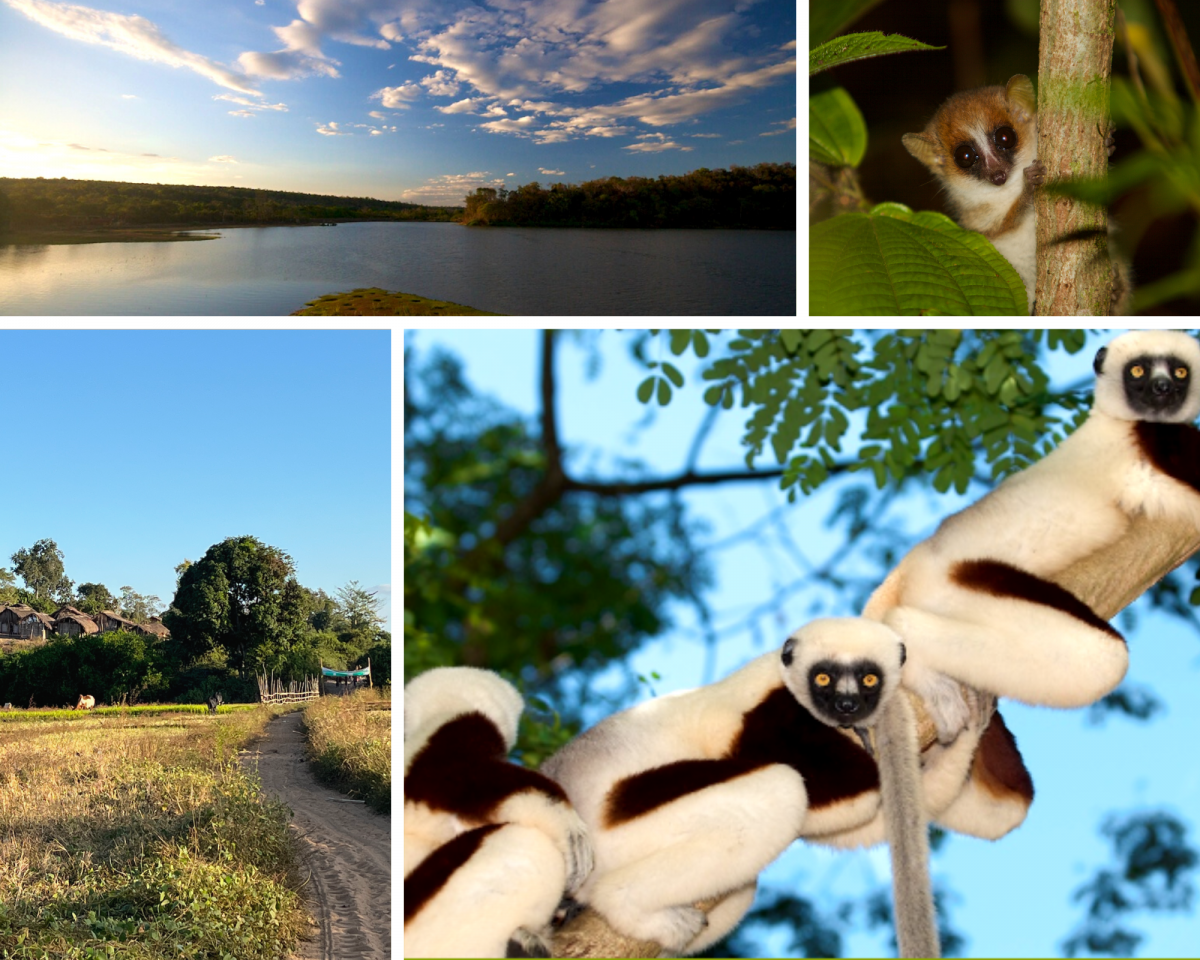
One Health [1] is the collaborative effort of multiple disciplines working together on our planet’s most complex animal, human and environmental health problems. Madagascar offers a unique opportunity to study conservation issues within a complex One Health scenario where people, endangered wildlife (lemurs), and domestic animals share the same forest environments. Madagascar also has a robust Primatology and conservation community that this Field School will leverage through shared participation in the program. Students will be divided into research groups focused on animals, people, or the environment and will work in pairs that include one Malagasy student. Students will also engage with the nonprofit Planet Madagascar [2] which is focussed on lemur conservation and community development, as well as work with residents of rural communities, and will also be mentored by at least one Malagasy professor.
Student are strongly encouraged (but not required) to have taken ANTH*1150 Introduction to Anthropology and ANTH*1120 Biological Anthropology and/or ONEH*1000 Introduction to One Health by the end of W24, prior to participating in the Madagascar Field School.
Field Conditions and Expectations:
- Sleeping in tents
- Sleeping conditions that can be either hot (above 20 degrees C) or cold (below 20 degrees C)
- Sleeping in conditions that are loud (vehicles, celebrations)
- Must be able to hike in difficult terrain for approximately 10 km daily
- Must be able to carry a backpack
- Must be able to adapt to changing environmental conditions (temperature, humidity and rainfall, presence of insects)
- Must be willing to live with limited electricity and access to internet while in Madagascar
- Must be able to adapt to respect local cultural norms
- Must be willing to eat a diet that reflects local cultural norms (we can accommodate some dietary restrictions but not all are possible — consult the Field School Coordinator for more information)
- Be responsible for all acquiring all necessary medications and vaccinations for travel in Madagascar
Information Session
Tuesday, October 29
5:30 - 7 pm
UC 430 (take the North elevators by Starbucks)
or
Join the meeting [3](virtual on Teams)
Field School Details
- Instructor: Dr. Travis Steffens [4], Sociology and Anthropology
- Offered: Summer 2025 (previously offered in S23)
- Prerequisite: 7.5 credits or permission of the instructor, 68% cumulative average
- A (tentative) course outline can be found a the bottom of this page
- If you have any questions about the program, please contact Dr. Travis Steffens [4] or Allison Broadbent [5], Study Abroad Manager.
Program Dates (tentative)
- May - June: 1-2 weeks of in-person classes on U of G campus, 4 weeks of field work in Madagascar
Course
Students will be registered in 1.0 credits at the third year level.
This international field school is open to students from all disciplines at the University of Guelph.
Costs
Students should budget for the following:
- Round-trip airfare to the Madagascar (estimated $1900)
- Tuition at the University of Guelph for 1.0 credits
- The Madagascar Field School fee: approximately $3400 (includes in-country travel / camping fees, tent, sleeping bag and sleeping pad / local guides / meals / Andasibe - Mantandia National Park Site visit). Amount is subject to change based on fluctuating exchange rate.
- Visa fee: $50
- Mandatory travel health and emergency insurance through the company Guard Me [6] ($1.65 / day)
- Personal expenses (souvenirs, additional personal excursions, etc)
Travel Grants
See the University of Guelph travel grants [7] available.
Eligibility
Students applying for the program must have completed a total of 7.5 undergraduate credits by the time the program begins in May 2025 (or permission from the instructor), and must have a 68% cumulative average.
Students are strongly encouraged (but not required) to have taken ANTH*1150 Introduction to Anthropology and ANTH*1120 Biological Anthropology and/or ONEH*1000 Introduction to One Health by the end of W25.
The program is open to students from all disciplines at the University of Guelph, with a maximum of 12 students being accepted to the program.
Application Deadline: January 31, 2025
Apply to the Madagascar Field School
To apply for Field School programs you must complete CIP's online application. Step-by-step application instructions are outlined in the link below.
